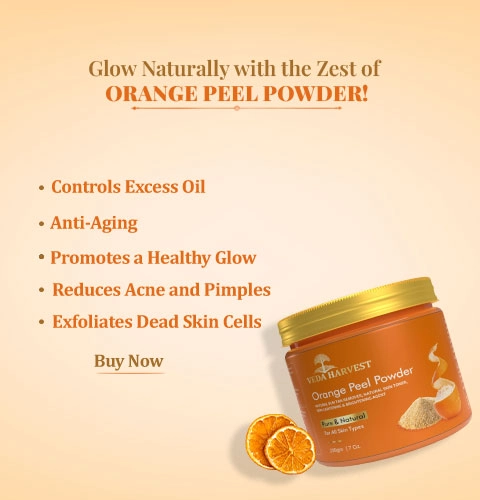Skincare
Get Your Glow On: Expert Tips for Eliminating Dead Skin Cells
Get Your Glow On: Expert Tips for Eliminating Dead Skin Cells
Everyone strives to display healthy-looking, radiant skin. But it requires much more than that cosmetic moisturizer. What exfoliation does is remove dead cells from your skin, which eventually lets new, radiant skin come alive. So whether you are one who is just about to embark on this journey or you need a little improvement in your exfoliating routine, we will dive into those expert methods, which will aid you in keeping that glowing skin all year round.
Table of Contents
- Understanding Exfoliation
- Know Your Skin Type
- Types of Exfoliation: Chemical vs. Mechanical
- Best Exfoliation Tools and Products
- Safety Tips for Exfoliation
- Post-Exfoliation Care
- FAQs
- Conclusion
Understanding Exfoliation
Exfoliating refers to the procedure to remove dead cells off your skin. Dead cells start piling up upon each other, thereby creating lumps that block your pores. This situation leads to the formation of pale spots on your skin. A constant exfoliating process leads to bringing fresh skin to the outer layer. Moisturizers and serums get easy entry into your skin in this situation.
Know Your Skin Type
Before entering into exfoliants, though, you need to know your skin type. Which is either dry, oily, combination, or sensitive skin, and it can help you in choosing the right kind of exfoliant and how often to make use of it. For instance,
Dry Skin: Your skin mainly focuses on using hydrating gentle exfoliants
Oily Skin: Their skin needs strong, deep cleansers.
Sensitive Skin: They need to use enzyme-based, gentle exfoliants
Types of Exfoliation: Chemical vs. Mechanical
Chemical exfoliation: involves the use of acids (AHAs/BHAs) or enzymes in order to remove dead skin.
- AHAs Alpha Hydroxy Acids, glycolic and lactic acid are best suited for dry or sun damaged skins
- BHAs Beta Hydroxy Acids, salicylic acid is wonderful for oily or acne-prone skins
- Enzymes are gentler and ideal for very sensitive skins.
Mechanical Exfoliation: This involves the dry rubbing of the outer dead skin layer with the help of rushes, loofah, or even exfoliating scrubs. This type of exfoliation is more preferable for normal to an oily skin types.
Best Exfoliation Tools and Products
–Scrubs and Powders: One great natural exfoliant for sure is orange peel powder. Packed with vitamin C and antioxidants, orange peel powder can nicely remove dead skin while making your complexion shine even more. This makes for a great exfoliating DIY scrub: mix it with water or yogurt and work it in using sweeping circular motions on your skin, as that lovely dead cell feel is being removed and refreshed. Do not use walnut shell or sugar granules for abrasive particles can tear the skin small.
note: you can explore our orange peel powder
–Exfoliating Brushes or Gloves Some products you can use to buff off dead cells lightly but do not over-exfoliate.
–Chemical Peels: Glycolic or salicylic acid-based products for deeper exfoliation. Always follow product instructions and start slow.
Exfoliation Safety Tips
Exfoliation is mighty but damaging if carried out too aggressively. Here are a few safety tips:
- Start slow: Exfoliate once or twice a week, depending on the needs of your skin.
- Moisturize immediately: Your skin will feel dry after exfoliating so have your bottle of oil or lotion set up to douse it right away.
- Apply sunscreen after exfoliation: Your skin will be more sensitive to ultraviolet radiation after exfoliating. Therefore, take some sunscreen to moisturize it and prevent damage from these harmful rays.
Post-Exfoliation Care
After you’ve exfoliated, your skin is quite responsive to treatments. So that’s the right time to apply all your favorite serums, locked in with the right good moisturizer. Lock everything in with hyaluronic acid, shea butter, or glycerine.
FAQs
How frequently should you exfoliate?
I probably exfoliate either once or twice a week-it really depends on your skin type. If you have oily skin you can exfoliate more often. If you have dry skin, your skin is sensitive, etc. then exfoliate less.
Chemical vs. mechanical exfoliation
That’s up to your skin type and purposes you want to achieve. If you have sensitive or dry skin, chemical exfoliation is more gentle and easily managed. If you have normal to oily skin, then mechanical would be better.
Can I exfoliate every day?
No. It’ll dry out the skin and irritation will occur. Only a few times a week will put it into balance.
Is the procedure done efficiently during night or morning time?
Through either, but most prefer doing it during night for the fact that exfoliation will remove all dirt and oils of the day on your skin.
Conclusion
One of the secrets to your radiant glow is exfoliation-but you have to do it just the right way. It makes a huge difference with this: the proper method and products that work for your skin type, really removing dead cells for an ideal, radiant complexion. Always remember to exfoliate with care, moisturize afterwards, and protect your skin from the sun-so just remember these three things and be ready to shine.



